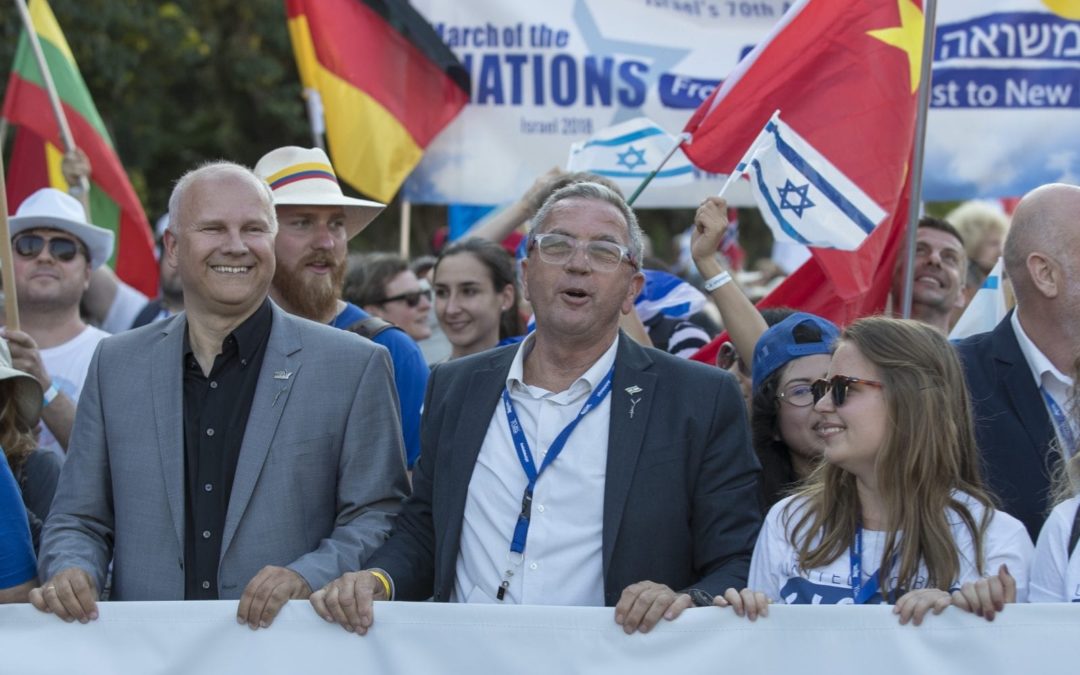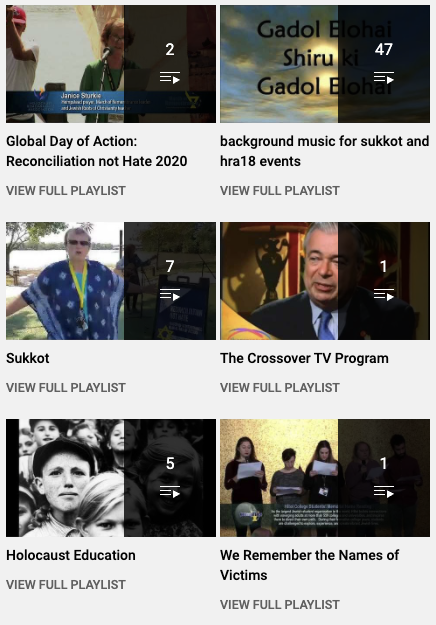24NEWS September 20, 2016
The March of Life movement organizes reconciliation marches with descendants of Nazi perpetrators
Growing up in Germany, Bärbel Pfeiffer never felt a personal connection to the Holocaust. She saw photos of her maternal grandfather in uniform but attributed this to a closed chapter in her country’s history. But when her church in the south German town of Tübingen encouraged the congregation members to explore their families’ past, she too began to ask questions.
Unexpectedly she uncovered a tightly kept family secret: Her other grandfather, an engineer, helped build the Auschwitz gas chambers.
“Some people have beautiful paintings their grandfather left them. I have this – a place of so much pain,” she says, with tear in her eyes as she tells her family’s story. “I was shaking for weeks after I found out. It’s a terrible thing to know, and there was nothing else I could do except say I’m sorry.”
In 2012 she traveled to Auschwitz with her church and faced the survivors. “I wanted to speak the words that my grandfather never spoke, say the things he never said. He never asked for forgiveness. When he came back, he told his family what he had done and said, ‘don’t you dare speak of this, nobody must know.’ And so the whole story remained a secret.”
Such buried truths exist in many German households still struggling with their past, believes Jobst Bittner, founder of an evangelical protestant ministry called TOS in Tübingen, and initiator of the March of Life movement which organizes memorial and reconciliation marches with descendants of the Nazi perpetrators all over the world.
A lot has been done in Germany to work through its past on the political level, but on the family level many stories have not yet been told. We call it the ‘veil of silence’ and it was extremely notable, particularly in our city.”
Trying to lift that veil and partially atone for the silence of the church under the Third Reich, Bittner and his congregation devoted themselves to three principals: Remembering their own history and the stories of the survivors, facilitating healing and reconciliation between descendants of the perpetrators and the victims, and taking a stand for Israel and against modern anti-Semitism.
Since its foundation in 2007, the movement has been involved in over 300 marches in 14 countries. Its activities also include teaching seminars on how to organize marches or how to research one’s family history in connection to the Holocaust. The March of Life also sends volunteers to Israel to assist Holocaust survivors and people with disabilities.
“Many churches now support Israel, but we want to make that responsibility into something more tangible, and that’s what the March of Life is all about,” explains Bittner. “We walk from A to B, we are out on the street, we are making a public statement, and we do see a great openness in the Jewish world, which is extremely encouraging.”
‘I stood in Auschwitz and understood’
But within Germany, some view their efforts with skepticism. Critics have accused Bittner of being publicity-driven, and his adherents of taking on a burden which isn’t theirs to bare. Also family members often disapprove of their efforts to stir up old demons, say the march’s participants.
“The difference between us and other Germans is that we weren’t satisfied with the first answer we received when we asked ‘what did my grandfather do in the war?’” argues Friedhelm Chmell, another parishioner.
For years he too was content with the initial answer, that his grandfather sat at a desk in an office and “was no soldier.” His family never wanted to know more, but following his involvement with the March of Life he began to research the true nature of his ancestor’s work.
“When I was in Auschwitz, I stood on the ramp and for the first time I truly understood what my grandfather actually did,” explains Chmell. “Before I knew a lot of facts, but in that place it became clear to me – my grandfather perhaps gave his signature or was co-responsible for the fact that twenty thousand Jews ended up here.”
Facing such realizations regarding their forefathers’ deeds never gets easier, admit movement members, yet none of them regret knowing. Such awareness also leads to honest self-reflection, believes Markus Kalb, who learned that his family lived next to a concentration camp in Hamburg.
“Before I was the one who was racist, I was the one who cursed at Jews and I never asked why I am like that. But in the history of my ancestors I found the answer. They were among those who even killed people who weren’t German, and in my heart I found the same attitude 70 years after. But because I know where it comes from, now I can deal with it.”
‘I also made jokes about Jews’
Other members speak of similar experiences. When Samuel Haas first learned of his forefathers’ actions in the war he wasn’t very interested. “But I noticed that I also had many prejudices against Jews. I made jokes about Jews and that seemed normal in my surroundings. But I began to wonder why?”
After researching his history further he learned that all four of his great-grandfathers were Nazis. One printed propaganda material, while the others were Wehrmacht soldiers, moving through Europe murdering and pillaging.
“That shook me, not only because I realized what my relatives did to the Jewish people, but also because I knew that it has something to do with me personally. It existed in me too, it wasn’t just in the past and I needed to do something about it.”
Haas began to give lectures in his school, changing also the staff’s attitudes. “Even a teacher that previously told me that there is no more anti-Semitism nowadays, that it’s only a problem of the Nazi era, was very thankful when I spoke out. I told my story and everyone else began doing the same. They asked at home, they did research and they dealt with this issue not like it was another history lesson, but as something that relates directly to them.”
Haas, Kalb and Chmell also recently took part in a music video produced by the March of Life, singing the Israeli national anthem and declaring their commitment to Israel and to the commemoration of the Holocaust. Meant as an invitation to take part in a planned multinational march in Israel in 2018, the video unexpectedly went viral.
“There is so much joy in the Jewish culture and heritage,” adds Kalb, “and when we sing in Hebrew, this is an expression of the joy we feel, because we know that something has changed in our lives and in our families.”
Polina Garaev is i24news’ correspondent in Germany.

